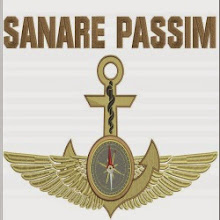Pride goeth before the ambulance...
Original Post Date: 5/4/08
Pride is the double edged sword of any subculture. And, make no mistake, paramedicine is clearly a subculture. There is the pride that drives one to step forward for a difficult assignment because he knows he can handle it and can prove it. This is the William Wallace brand of pride. Then there is the darker side of pride; the kind that goeth before the fall. This pride tricks the tragic characters in our lives into stepping up for the tough job without the skills and without disclosure because they think they can do it and WANT to prove it. Sadly, the latter brand is far more common.
Paramedics are very proud of what they've done and where they've done it. So proud, in fact, that they often find themselves in over their heads because someone trusted them with a patient they've no business caring for and too ashamed to ask for help. Then who pays?
The patient.
I borrow a line from ER (the show) here: It is never about us! Our patients deserve the best care – they demand it, and they don't care who it comes from. And, this is the part that sticks in everyone's craw: we shouldn't care either. If we, anyone, cannot handle what we've been given then it is up to us, everyone, to say so. I find this especially important when charged with caring for patients between medical facilities. On scene, we skillfully bring our patients from no medical care into our charge and off to the hospital. In the case of a transfer; however, we purposefully remove them from a medical facility with the express purpose of delivering them to another one in as good or better shape as when we left. The worst possible action is for an incompetent technician to take this patient knowing they cannot care for them and not say so.
The long view of the solution is education. Learning really is power. But the solution at the bedside is to step back and let someone else take over. What stops us from doing that? You guessed it….pride's ugly, villainous twin.
To err is human; to err on purpose is negligence.
But what of the good pride? The kind that gets you to work 15 minutes early. Or, the kind that helps you find the time to press your shirt the night before your shift. Or, even better, the brand of pride in yourself and your career that drives you to get more than the minimum amount of con-ed and look really hard to find good education even if it means you have to pay for it yourself. And maybe, just maybe, if you cannot afford to pay for quality training you should reread paragraph 3 and study on the pride that keeps you comfortably living within your means, but that is an entry for another day.
Recently, I attended a paramedic graduation at a local community college, and I was surprised to see that the paramedic students were graduating alongside other program participants who had made a much lesser commitment in terms of length and intensity. The college seemed perfectly comfortable putting paramedic students behind graduates of programs that were less than one tenth as long. Paramedic school is fourteen moths full of lectures, labs and hundreds of hours of clinical skills rotations; yet this institution made them feel as though their accomplishment was no different than that of someone that had completed six weeks of school and a few hours of OJT.
How do we honestly expect to grow pride at the grassroots if there is none coming down from the top?
If we choose to treat ourselves with no respect as a matter of policy, we should expect no more from our colleagues in medicine as a matter of course.

No comments:
Post a Comment